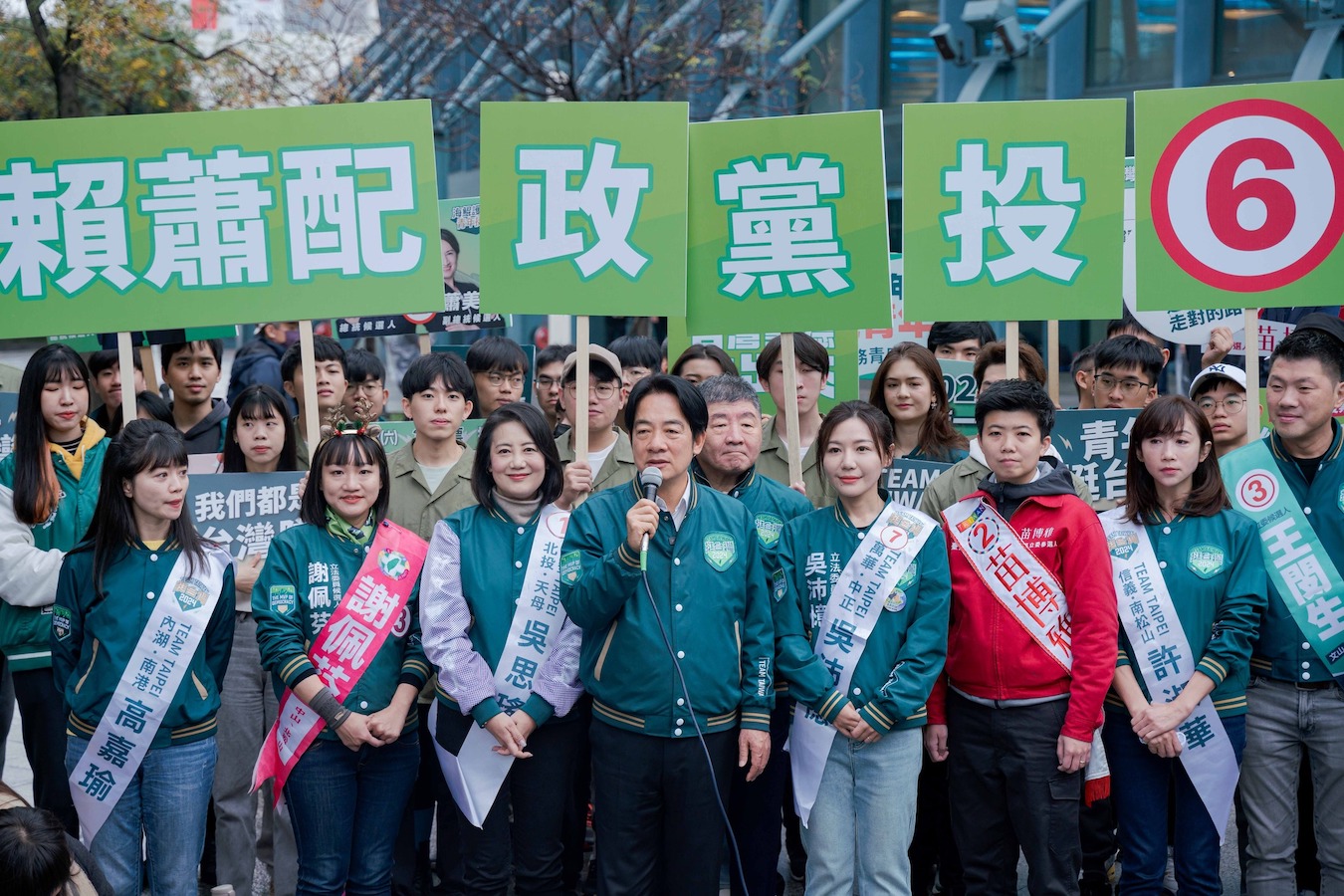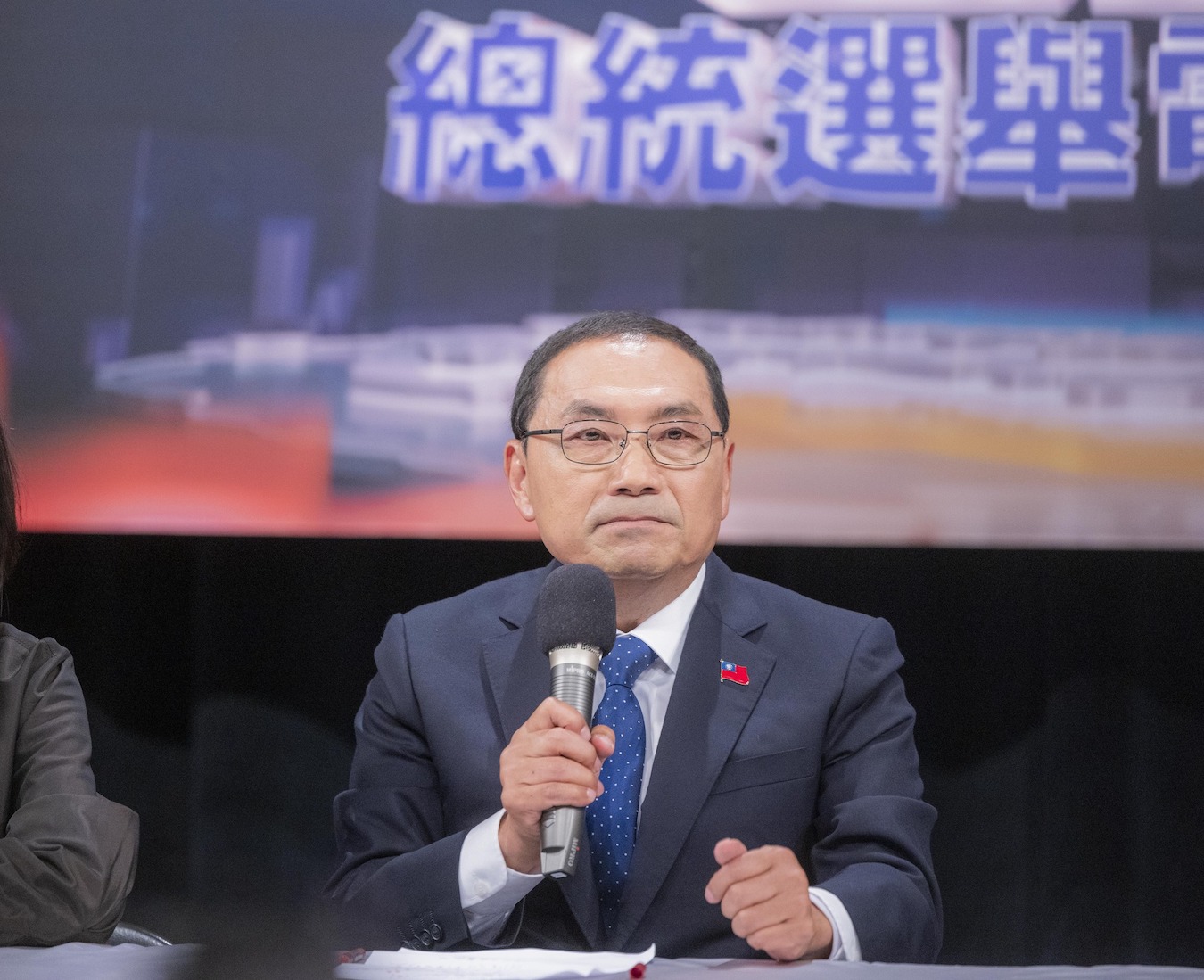by Brian Hioe
語言:
English
Photo Credit: Chien Chih-Hung/Presidential Office/CC BY 2.0 DEED
DPP PRESIDENTIAL CANDIDATE and current vice president Lai Ching-te has expressed support for vaccine manufacturer Medigen revealing the details of its contracts with the government.
Lai would be responding to criticisms from the KMT that allege Medigen development only took place because of the DPP’s investments in the company. This is similar to how the KMT alleges that the DPP only pushes for the development of renewable energy in Taiwan because of investments in green energy companies.
Medigen development was embraced by the Tsai administration at a time when Taiwan was lacking vaccines during the COVID-19 pandemic. Taiwan’s lack of vaccines during this period was also criticized by the KMT, which alleged that this was the result of the inaction of the Tsai administration that Taiwan did not have vaccines–rather than that most countries in the world that were not major powers lacked vaccines.
 DPP presidential candidate Lai Ching-te (center). Photo credit: Lai Ching-te/Facebook
DPP presidential candidate Lai Ching-te (center). Photo credit: Lai Ching-te/Facebook
It is probable that the majority of the Taiwanese public is unaware of how many other countries developed their own vaccines, even just in the region, and the details of the vaccine development process. Such vaccines, too, had to contend with competition from western and Chinese-developed vaccines domestically. The KMT would be taking advantage of the information gap of the Taiwanese public about the world outside of Taiwan in order to attack the DPP on this front.
The Ministry of Health and Welfare expressed support for Lai’s proposal, citing the special nature of the Medigen case, but stated that it will need to persuade Medigen to comply. For its part, Medigen initially pushed back against the idea, arguing that the contents of all vaccine contracts should be made public rather than just Medigen contracts. Premier Chen Chien-jen has also stated that the government is in the process of negotiating with Medigen, as the shareholders must agree on this process, though he denied claims such as that the terms of the contract was to be sealed for 30 years.
This would be improbable to take place, as pharmaceutical companies are usually reluctant to disclose the contents of their contracts. Such contracts often do not publicize the details of vaccine orders, redacting information on price and quantity, or contain clauses to avoid liability.
This reflects the enormous power that pharmaceutical companies have internationally. Indeed, one notes that this has been the case across the board with pharmaceutical companies that produced COVID-19 vaccines, which have been accused of putting profit before the priority on saving lives. Examples include Pfizer to the COVAX international vaccine sharing agreement.
 KMT presidential candidate Hou You-yi. Photo credit: Hou You-yi/Facebook
KMT presidential candidate Hou You-yi. Photo credit: Hou You-yi/Facebook
As this is not a problem specific to Taiwan, it would indeed not be surprising if the terms of the contract provoke outrage in Taiwan, even if Lai is pushing for the disclosure of such contracts as part of campaigning. The KMT would be liable to leverage on such outrage, drawing on that the public likely does not know this is the situation across the board with vaccines and pharmaceutical companies–though the KMT itself clearly would know this from its years in power.
This proves similar to how Terry Gou alleged that the Tsai administration was inept in being unable to purchase vaccines and claimed that he would seek to do so himself. Gou was aiming to use the accomplishment of being able to negotiate vaccine purchases for Taiwan to build credibility for an eventual presidential run.
And though Gou was eventually successful in doing so, this only took place after the Tsai administration authorized him to negotiate on behalf of the government. Namely, vaccine manufacturers normally only sell to national governments, not to private individuals or companies, but the general public is largely unaware of this.
One can point to a larger pattern of the pan-Blue camp taking advantage of public unawareness of certain issues–such as the untransparent nature of the pharmaceutical industry–in order to attack the DPP. But this perhaps should not surprise, where the KMT is concerned.

